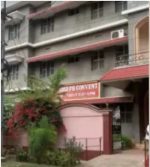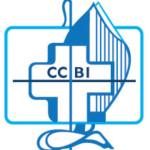By Saramma Emmanuel
Bharwani: A Catholic nun’s crusade against social discrimination of lepers in a central Indian state has given them an abode and their children hope for a bright future.
One of these children, Sunita Nagrawe, is all set to join as finance officer with the Madhya Pradesh state government. She is a resident of Asha Gram (village of hope), an enclave of lepers on the outskirts of Bharwani district headquarters.
The 25-year-old woman got the job after clearing a competitive examination conducted by the state government attempted by 2 million job aspirants in 2014. The result was announced end of 2016.
Sunita credits Sister Suso Kottirikal, a member of the Poor Handmaids of Jesus Christ for her achievement.
“I would not have even seen the door of a school if sister had not helped me,” Sunita told Matters India on March 16.
She got her elementary education from Asha Bal Mandir (school of hope) the nun started in 1994 in the lepers’ enclave after finding that general schools kept the lepers’ children out.
The nun had worked as hostel warden in Church run schools for 16 years before dedicating her life to work with lepers in Asha Gram. “I was stunned when I saw a Catholic school chasing away lepers’ children who sought permission to use the school campus for study way back in 1984,” she explained her reason for work among lepers.
“They wanted some space to sit and study and not for joining the regular classes as they were not allowed to sit with other children,” she told Matters India.
 She recalled that teachers and students joined some local people to throw stones at the lepers. “It was the shock of my life I can never forget,” she recalled.
She recalled that teachers and students joined some local people to throw stones at the lepers. “It was the shock of my life I can never forget,” she recalled.
She began looking for an opportunity to serve the lepers and the time came 10 years later in 1994.
Asha Gram was started by Asha Gram Trust in collaboration with the state government.
Two sisters from Sister Suso’s congregation were made trustees. They dressed the wounds of the lepers and provided other helps needed.
But no one stayed with them
“As soon as I reached there (the leprosy enclave) I realized I could not effectively serve them if stayed in the convent,” she recalls.
The convent is 1.5 km away. “I soon moved into one of the huts in the enclave.”
Mahali Nagrawe, Sunita’s mother, said the nun “lived with us like one of us dressing our wounds and rendering other help we needed.”
Sister Suso gathered children and taught them under a tree as there was no other facility available there.
“Initially, nobody dared to come near to our enclave but with the effort of the nun, the poor people from the adjacent village began to send their children to the nun for informal education,” Mahali 48, recalled.
Sister Suso also says when she came the enclave even the doctors and nurses were skeptical to come close to them on account of the fear of spreading the disease.
“I kept visiting villages and explained to them that leprosy is not a contagious disease,” she explained. “They trusted me only after seeing me living with them and began to send their children to my informal school under a tree,” she added.
The school later became formal with government approval up to eight grade. “My parents are not leprosy patients but they were forced to live in the lepers enclave as my grand-mother had leprosy,” Sunita explains.
 When her grandmother was spotted with leprosy her family members dumped her to the enclave and never bothered again, she added.
When her grandmother was spotted with leprosy her family members dumped her to the enclave and never bothered again, she added.
“As I was born and brought up in the lepers’ enclave I too faced social discrimination even though I and my parents don’t have the disease. Nobody wants us back in our home,” she laments.
She is not an exception, but all the children born in the enclave face the similar situation even though they are not affected with the disease.
Sushila Nagrawa, a B Sc nurse working with the government hospital,also faced the same fate of Sunita. They are not relatives, but belong to the same sub-caste of Bhil tribes found mostly in Nimar areas of the state.
“When the entire world rejected us sister stood with us and educated us,” 26-year-old Sushila told Matters India.
The nun, according to her, always encouraged them to study well and arranged funds and other facilities required. Since two-and-half years Sushila is employed on a contract with a state government hospital.
Three more pass out from the nuns school are doing their nursing studies.
Currently, 110 children are studying in the school of which 80 are girls, some from the neighboring villages as well.
Earlier, most students could not continue their studies after eighth grade, but now “I focus on helping every talented student to continue their studies until they obtain a job of their choice,” Suso explained.
Anil Dodwe, a third year student of Bachelor of Engineering (BE) from a semi government college told Matters India, “I would not have reached here without the blessings and help of sister.”
“Since people look at us with contempt we never disclose our identity as residents of Asha Gram,” the 22-year-old said expressed his desire to help other children.
“The leprosy is not a contagious disease. It has medicine and proper care is taken in the begging stage itself it can be cured within six months” says the nun.
On account of ignorance, the nuns adds, “the people throw away people infected with leprosy, however, some changes have come but which is not enough to accommodate a leprosy patient or their children without discrimination”.
The nun calls for more awareness about the disease to allow lepers and their children to lead a normal life in the society.









